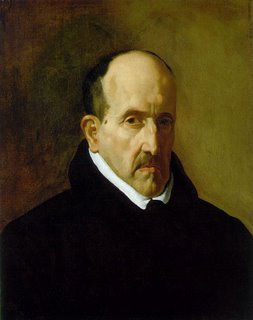
RETRATOS DE TRABALHO II - COUNT BRONOWSKY
“…Bronowsky smiled. Within sight of the end of his own reign he allowed himself the full pleasure of self-congratulation. Nawab Sahib had been transformed, step by painful step, from a tin-pot autocratic native prince of extravagant tastes and emotions into the kind of ruler-statesman whose air of informed detachment and benign loftiness was capable of leaving even the wiliest mind guessing and the coldest heart warmed briefly by curiosity; and wily minds and cold hearts were the combination Bronowsky found most common in English administrators. Nawab Sahib was Bronowsky's one and only creation, his lifetime's invention. He had fallen possessively in love with him and watched with compassion the struggle Nawab Sahib sometimes had to discipline himself to act and move - and think - in the ways Bronowsky had taught him.
Nawab Sahib removed his arm from the gentle support of the servant with the scissors and inspected the cuff. His private austerities were the last remarkable flowering of Bronowsky's design for a prince; remarkable because Bronowsky had not planned them. For Bronowsky, the austerities were to his design what the unexpected, seemingly inspired and unaccountable stroke of the brush could sometimes be to a painting, the stroke that seemed to have created the need for itself out of the combined resources of the canvas and the man who worked on it, and so was definitive of the process of creation itself and of the final element of mystery in any work of art.
The frayed cuff coats were not worn with the bombast of a rich miser, and it was difficult to say what emotion it was, precisely, that a man felt when he first noticed the spotless but threadbare cloth of the long-skirted high-necked coats, the clean but cheap and floppy trousers, the clean bare feet in old patched sandals or polished down-at-heel shoes; but Bronowsky believed that a major part of that response was made up of respectful wariness, much the same -- possibly -- as one's response would normally be to the sight of a gentleman down on his luck, but without the measure of pity and contempt such a condition evoked. The Nawab was rich enough for any but the most exaggerated taste. He was surrounded by proofs of his public comfort and of his private generosity. His austerities were reserved wholly for himself. They appeared at once as the badge of his right to lead a personal, private life and as evidence of how spare such a life had to be when so much of his interest and energy was expended for the benefit of the people it was his inherited duty to protect and privilege to rule. And it was this -- the duality of meaning to be read into the Nawab's appearance -- and the fact that the appearance was not deliberately assumed, that excited in Bronowsky the special tenderness of the artist for his creation. The austerities had been gradual, so that neither Nawab Sahib nor Bronowsky had ever commented on them. Equally gradual, Bronowsky supposed, had been the growth of dandyism in himself. It was as though the love that existed between him and the Nawab had exerted an influence to make them opposites, but what pleased him more was the realization that when they were together the comparative splendor of his own plumage looked like that of a slightly more common species. People, observing them, would be less inclined to believe what they heard -- that Bronowsky was the power behind the throne. In Bronowsky, pride in what he had made was stronger than personal vanity. It was part of his pride that Nawab Sahib alone should be credited with the talents and capabilities Bronowsky had worked hard to train him to acquire and exercise.
He believed that Nawab Sahib was quite unconscious of there being any particular meaning to read into his habit of wearing old and inexpensive clothes. The Nawab had said once as they were preparing to go out on a public occasion for which Bronowsky had arrived dressed in his uniform of Honorary Colonel, Mirat Artillery (a uniform he had designed himself and which incorporated certain decorative flourishes reminiscent of the uniform of the old Imperial Guard to which Bronowsky had never belonged): “Sit low in the carriage, Dmitri. Otherwise how will they tell that it is not you who is Nawab?”
“Should I sit higher than a man can sit, your Highness,” Bronowsky said, “they would still know I was but Bronowsky. A wazir must dress to do honor to the State and the Nawab Sahib is the State. His raiment is Mirat.”
The Nawab smiled: the same slow, grave smile that had been one of the persuasions the Russian felt to follow the small, lost, dark-skinned man of passion, sorrows and absurdities to his curious little kingdom in an alien land...”
Paul Scott - The Raj Quartet, II


<< Home